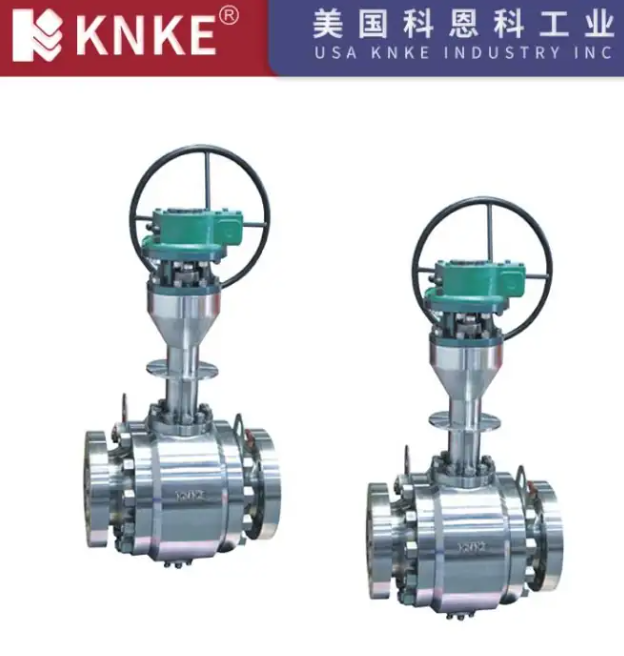Features and Applications of Ball Valves
Ball valves are widely used in fluid control systems due to their simple structure, excellent sealing performance, and ease of operation. This article will explore the key features of ball valves and the advantages they offer in practical applications.

1. Low Fluid Resistance and Smooth Flow
Ball valves have very low fluid resistance, making them ideal for applications requiring minimal flow obstruction. The smooth interior surface of the ball ensures that there is almost no flow loss, thus maintaining high flow rates and ensuring efficient operation of the system.
2. Simple Structure, Compact Size, and Lightweight
Ball valves feature a simple design, compact size, and light weight, which makes them easy to install and apply in various systems. Their compact design saves space and improves the overall efficiency of the system.
3. Excellent Sealing Performance
Ball valves are often made with sealing materials such as plastic, which provides excellent sealing performance. They can effectively prevent leaks, making them suitable for vacuum systems where maintaining a tight seal is crucial. Ball valves are especially important in applications that demand high sealing performance.
4. Easy Operation and Precise Control
Ball valves are easy to operate, requiring minimal effort to open or close. With a 90-degree rotation design, users can precisely control the flow, making system operation more efficient and allowing for better regulation of fluid flow.
5. Easy Maintenance and Convenient Disassembly
The simple structure of ball valves and their replaceable sealing rings make maintenance easy. When it is necessary to replace the sealing components, the disassembly and replacement process is much quicker and easier than with other types of valves, which helps reduce maintenance costs.
6. Wide Range of Applications
Ball valves are suitable for a wide range of fluids, including liquids, gases, and other substances. Whether in high temperature, high-pressure environments or in low-temperature and specialized conditions, ball valves can operate efficiently. They are used in various industries, including chemical, petroleum, natural gas, food processing, and pharmaceuticals.
7. Durable and Efficient
Ball valves are designed not only for ease of operation but also for durability. In environments with high corrosion, high pressure, or extreme temperatures, ball valves are capable of maintaining long service life, reducing the frequency of replacements and maintenance costs.
Ball valves are essential components in many industrial applications due to their unique structure and excellent sealing performance. Their low fluid resistance, easy operation, and superior sealing capabilities make them crucial in various fluid control systems. As technology continues to advance, the applications of ball valves will expand further, becoming a key tool for fluid control in a wide range of industries.
FAQ (Frequently Asked Questions)
1. What are ball valves used for?
Ball valves are used to control the flow of liquids and gases in various industries. They are commonly found in chemical, petroleum, natural gas, food processing, and pharmaceutical applications due to their reliability and efficiency.
2. How does a ball valve work?
A ball valve consists of a spherical ball with a hole in the center. When the valve handle is turned, the ball rotates 90 degrees to either open or close the valve, allowing or stopping the flow of fluid through the pipe.
3. Why are ball valves preferred over other types of valves?
Ball valves are preferred for their low fluid resistance, ease of operation, and excellent sealing capabilities. They are also more durable, requiring less maintenance than other valve types, and they can operate in high-pressure and high-temperature environments.
4. Are ball valves suitable for high-pressure applications?
Yes, ball valves are highly suitable for high-pressure applications. Their strong design and ability to provide tight seals make them ideal for use in demanding environments.
5. How do I maintain a ball valve?
Ball valves require minimal maintenance due to their simple design. However, it is important to regularly check for leaks and ensure that the valve operates smoothly. Replacing the sealing components when needed can help prolong the valve’s lifespan.
6. Can ball valves be used in vacuum systems?
Yes, ball valves can be used in vacuum systems due to their excellent sealing performance, which prevents leaks and maintains the vacuum pressure required for such systems.
